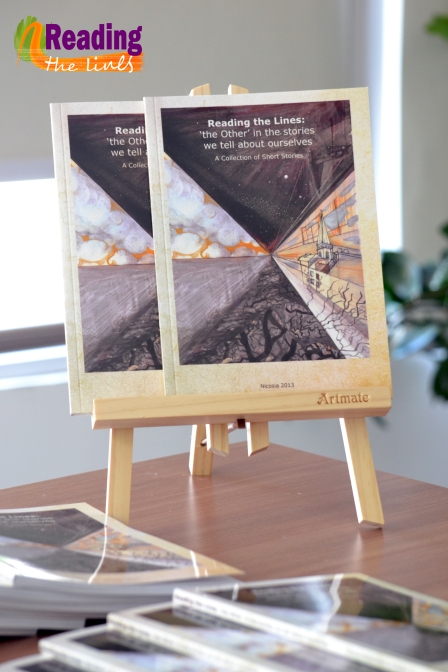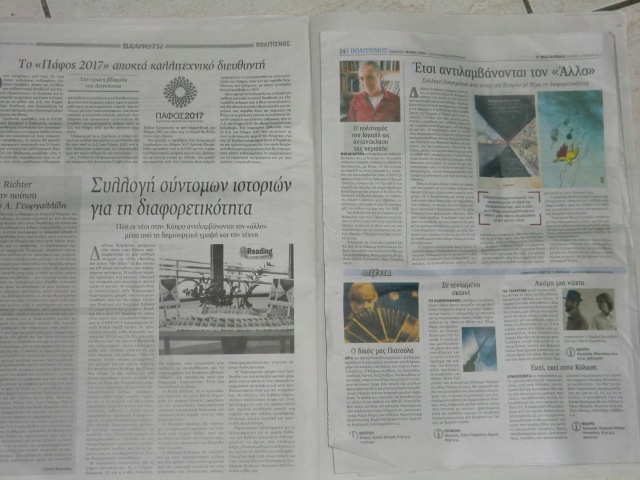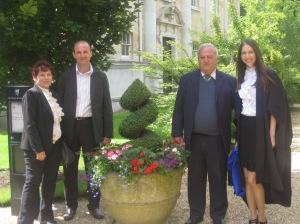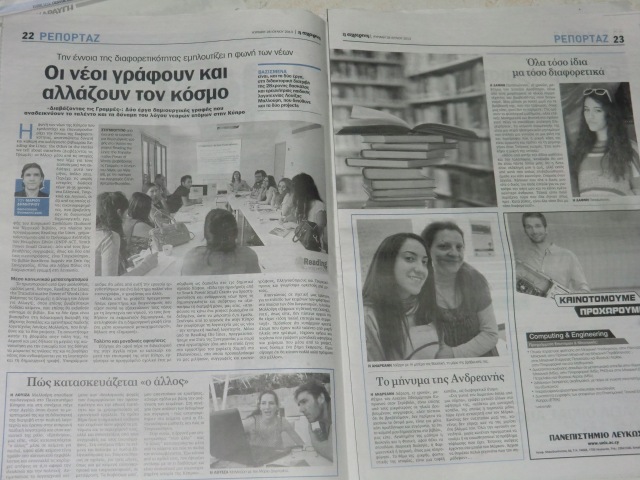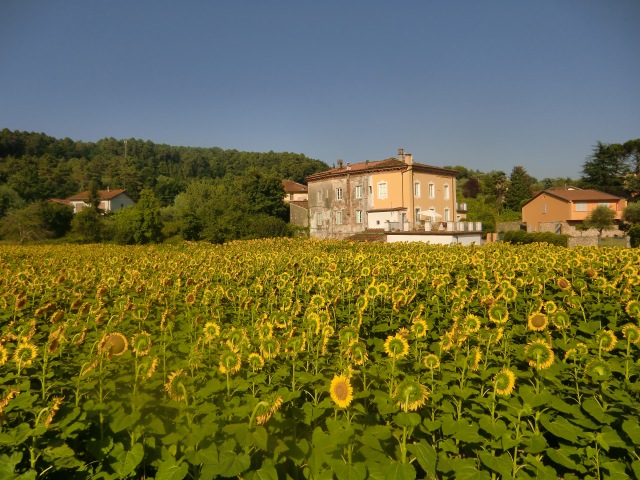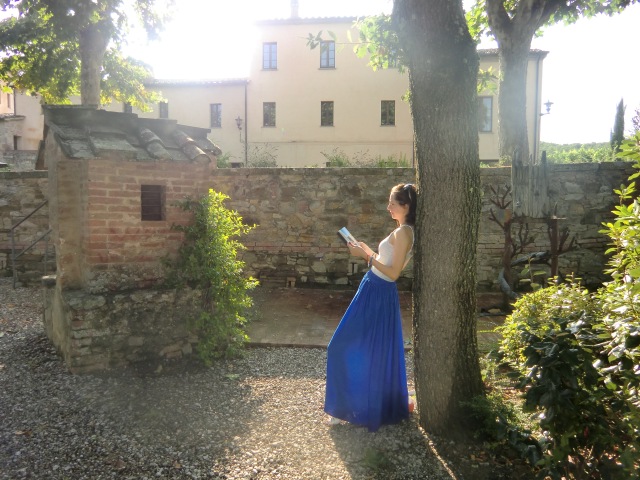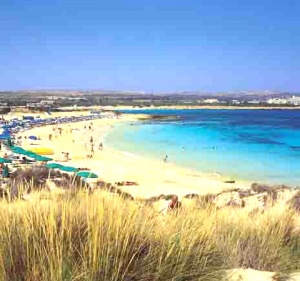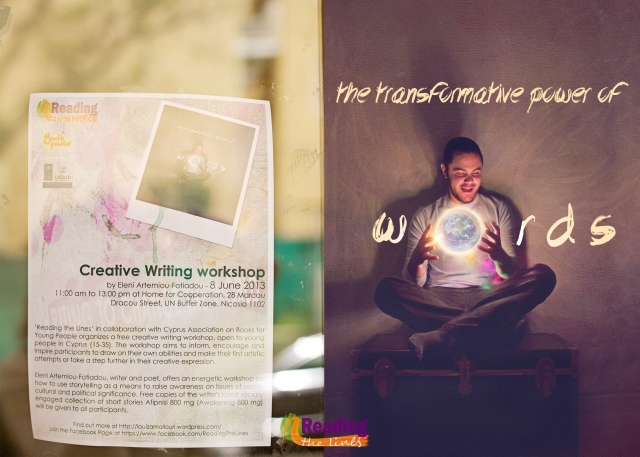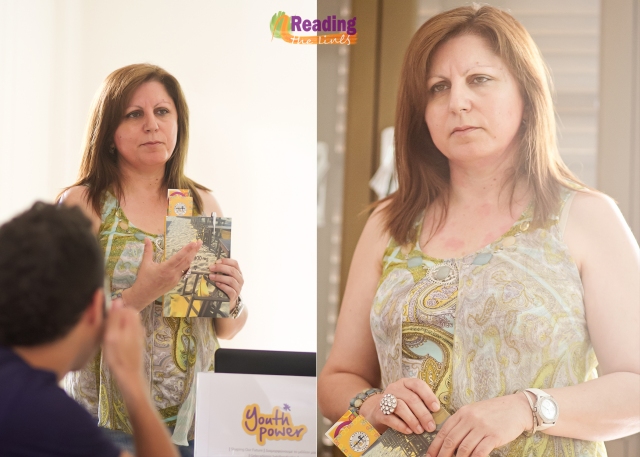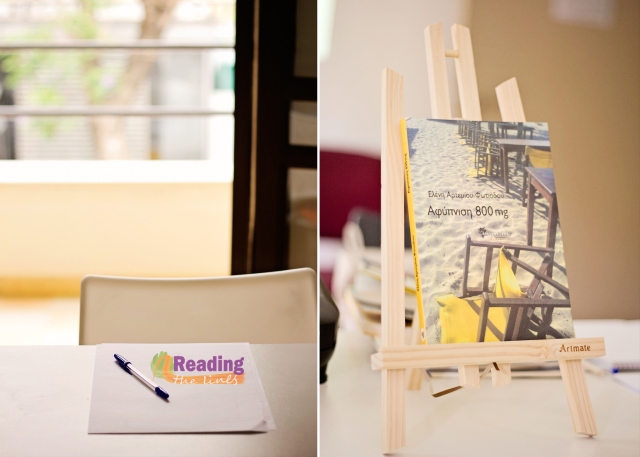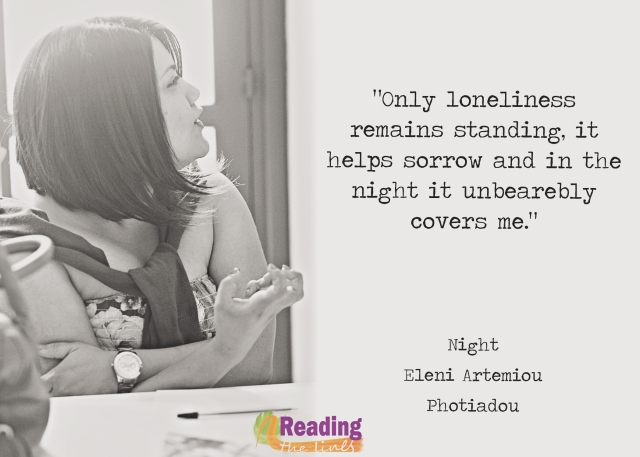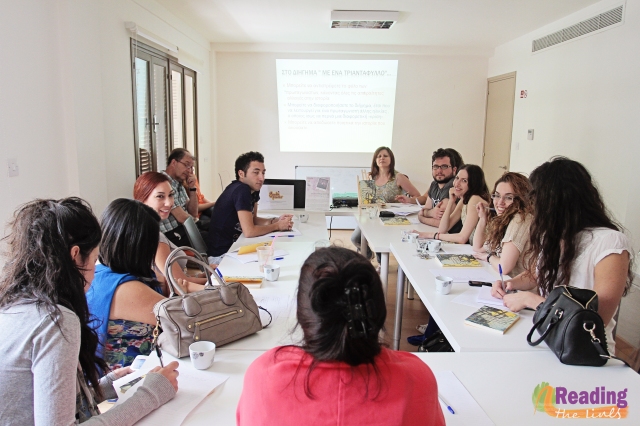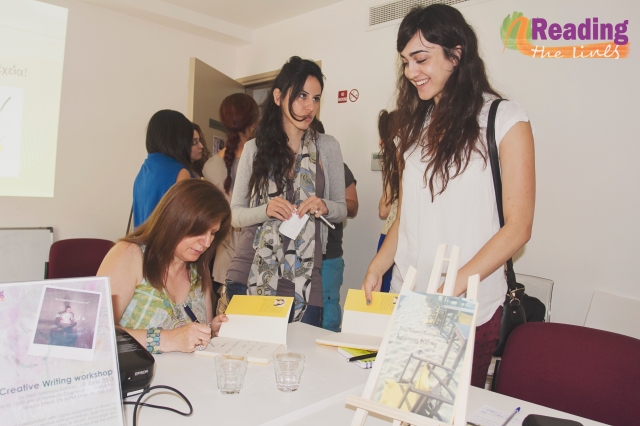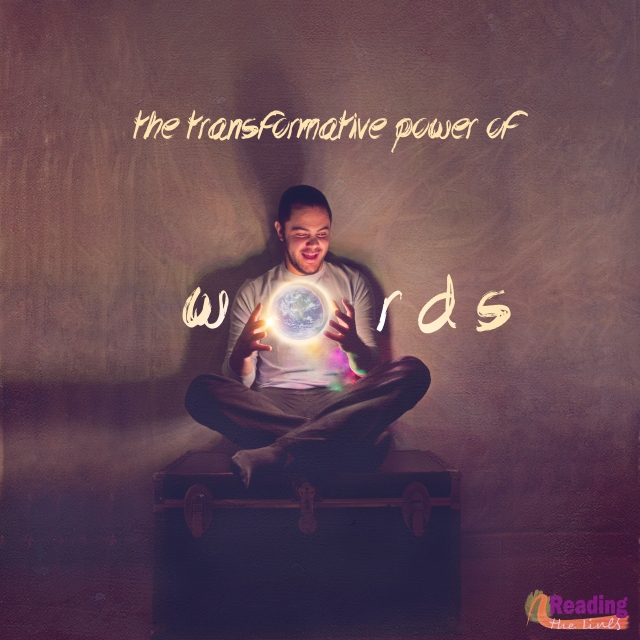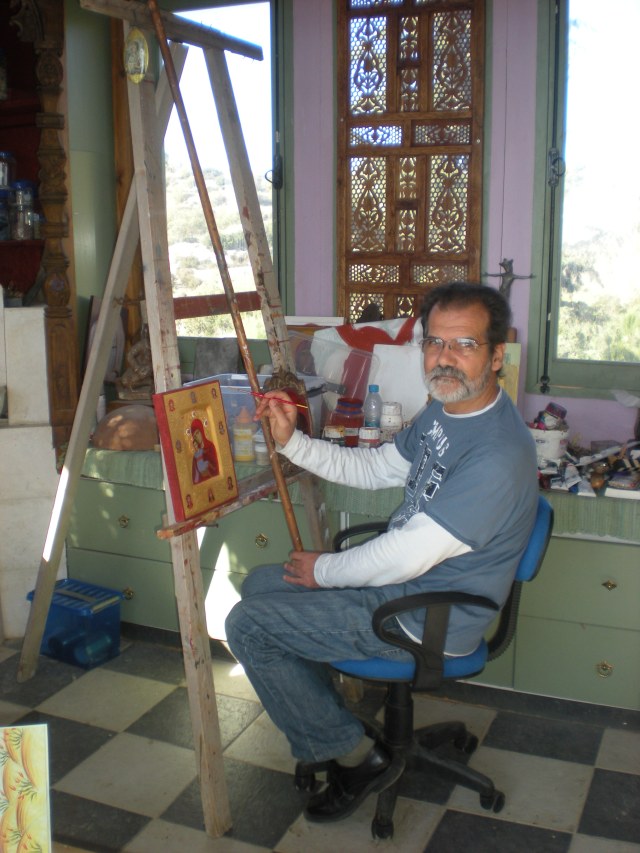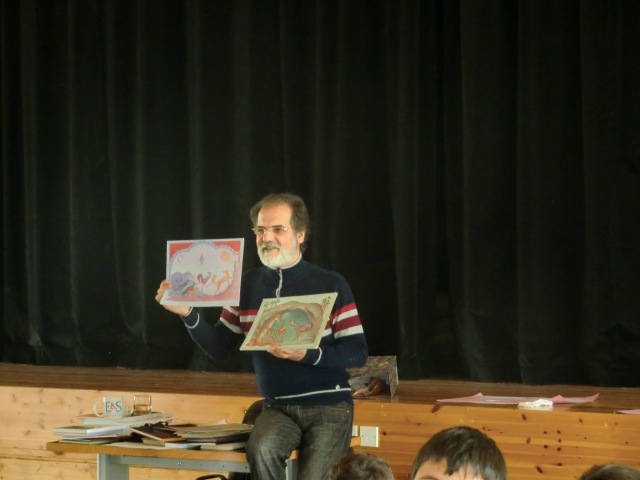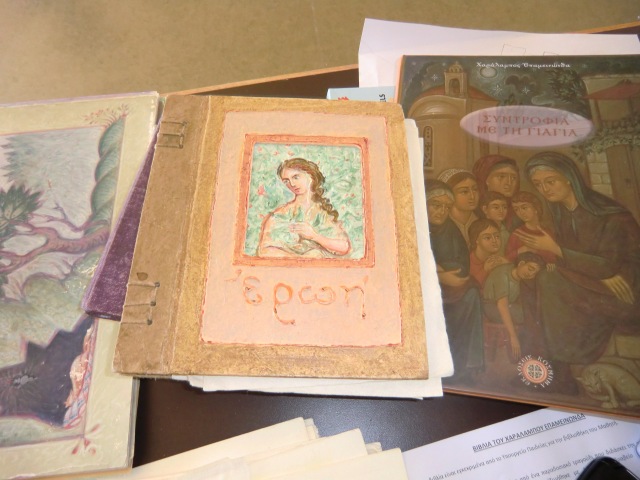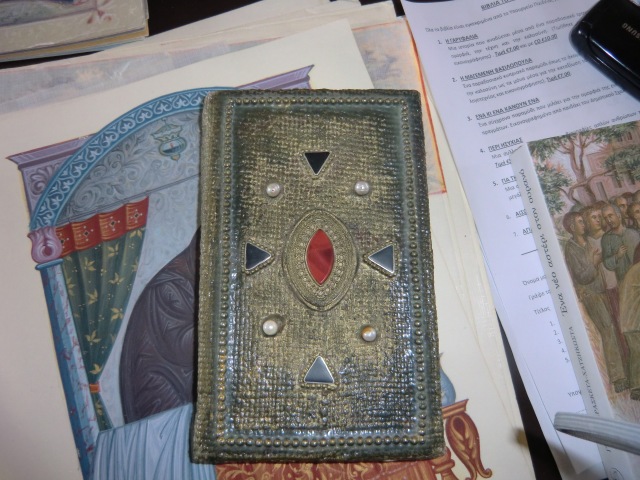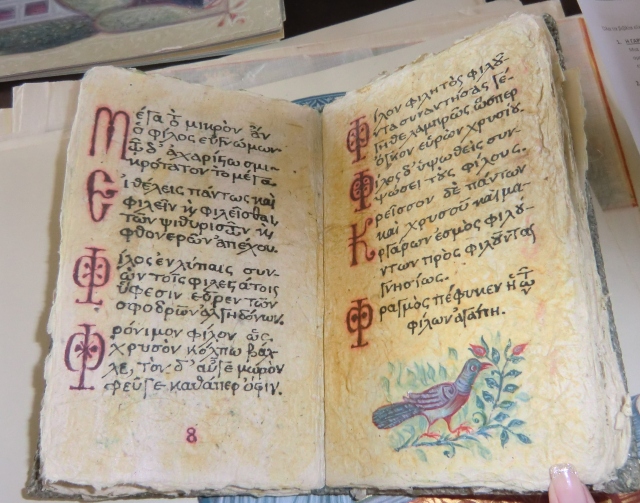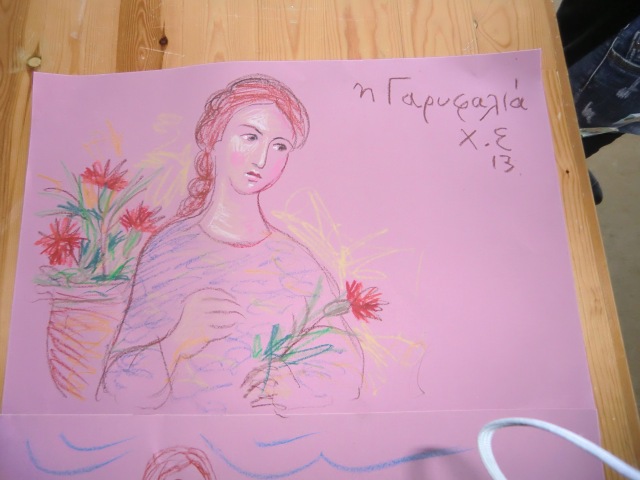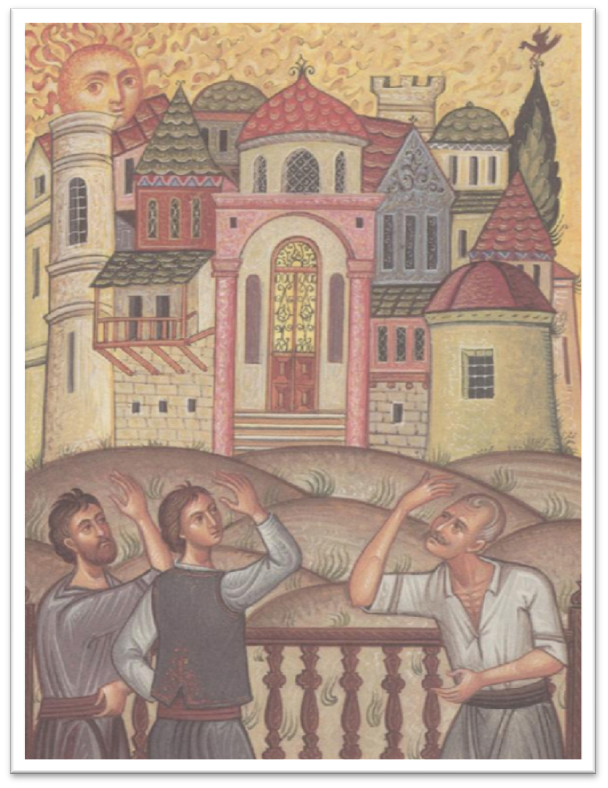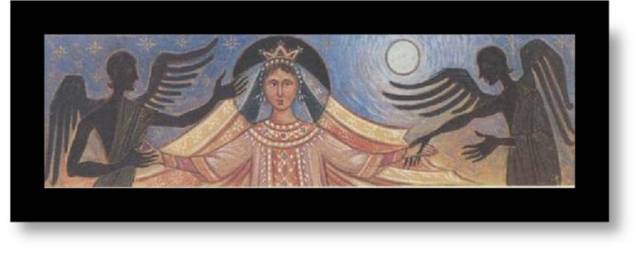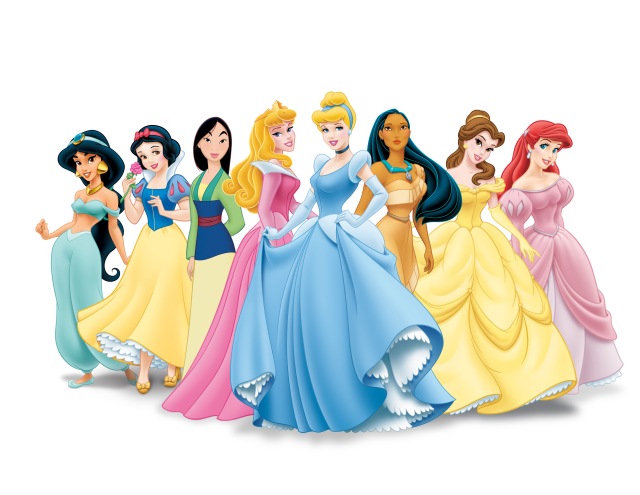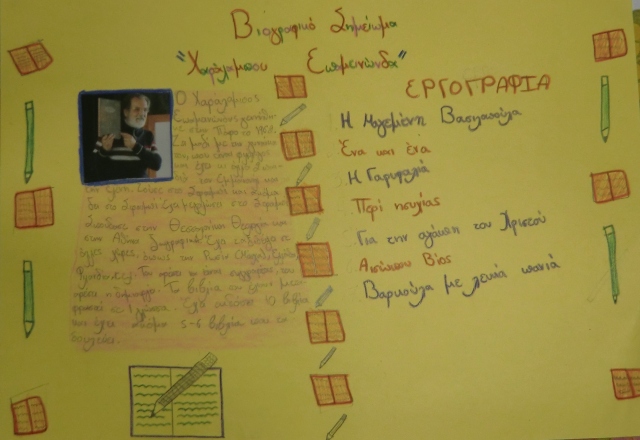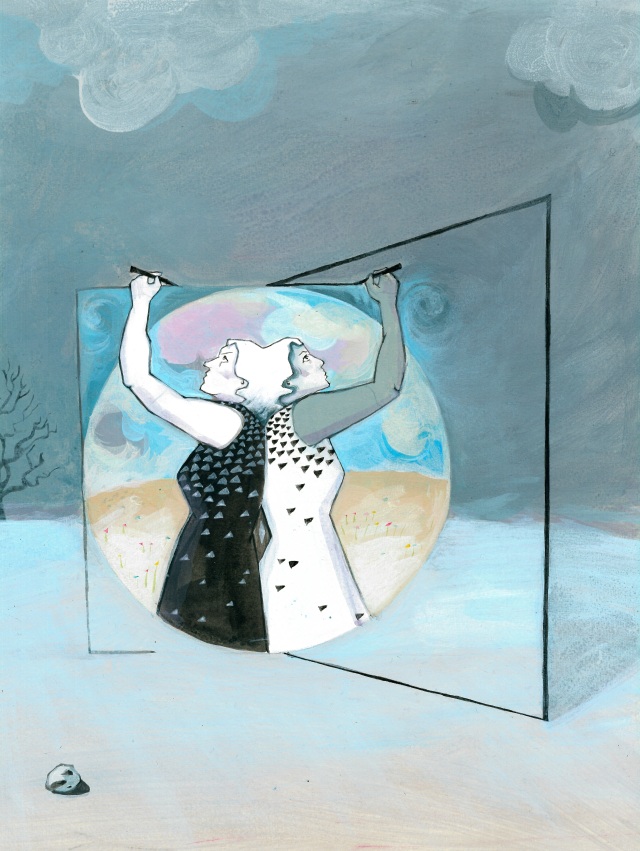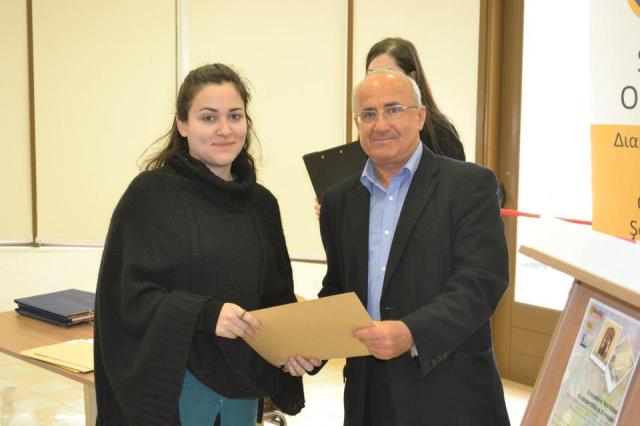I worshipped too many gods, but
After long winters in the North I know now
Sun, you are the most real!
Ganged up with the Sea,
in this Arid paradise, what have you done
To the lost pieces of porcelain childhoods?
I’m back, and have little time, so tell me.
(From the poem: I Worshipped Too Many Gods, translated by Gür Genç with Stephanos Stephanides)
Gürgenç Korkmazel is a person who likes being around other people and listening to their stories. He knows that people do not share their stories easily, so he starts by sharing his.
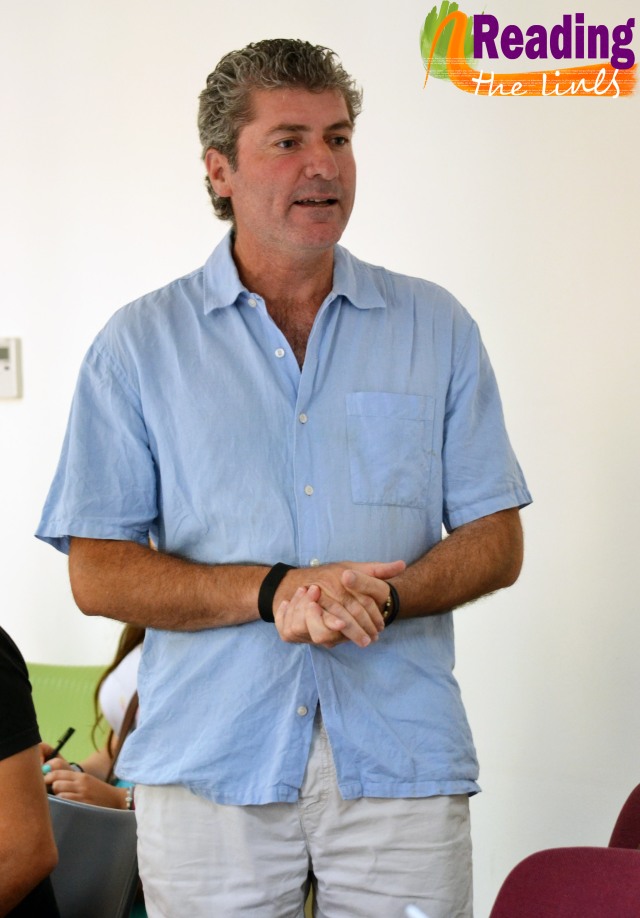
Gürgenç Korkmazel was born in 1969 in the village of Stavrokonno Pafos
As a youngster with 3 ear piercings, he would have a lot of conflicts with his father and society in general, as he was thought not to fit into the acceptable norms, but has most recently come to terms and compromised with society. Having worked with young people, he has noticed writing helps them to widen their perspective about the different aspects of life in Cyprus and that dialogue and love can change any unexamined prejudices. In particular, Gürgenç Korkmazel believes that writing is an effective tool to fight the ‘enemies of truth and history.’
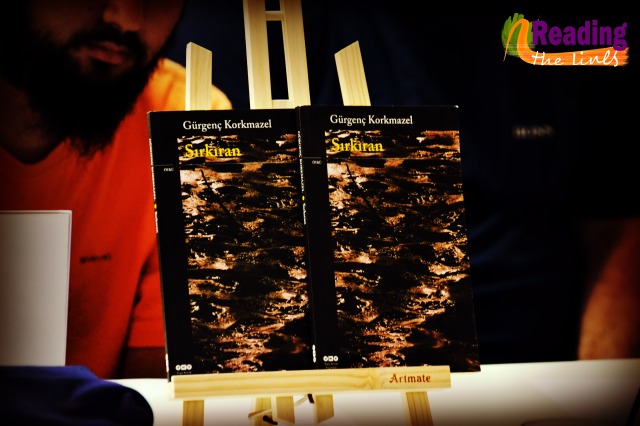
His latest book Sırkıran, (Secret-Breaker) İstanbul, 2013
More specifically, as far as the separation of the two communities in the island is concerned, Gürgenç Korkmazel mentions that most of the young people in Cyprus mention the importance of knowing each other’s language; although the writer believes this is useful, he maintains that it is far more important to familiarise ourselves with each other’s silences, the dark areas which can become accessible through works of art.
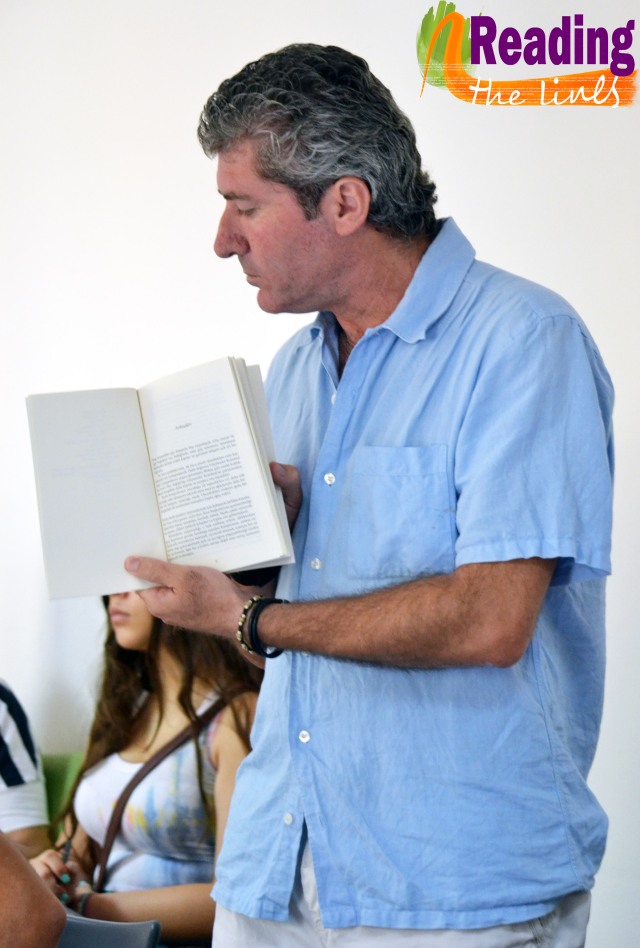
Gürgenç Korkmazel knows that people do not share their secrets easily, so he introduced a very interesting exercise and started
Writing is a such a tool, a tool which can connect. According to the writer, when you write you have to be ‘naked’, that is to say honest and genuine: this is how you can achieve effective communication with your audience. At the second part of the workshop we explored this transformative and healing power of words. And as mentioned in the beginning, Gürgenç Korkmazel knows that he has to share his own secrets first before other start sharing theirs. He revealed to the group that when he was 5, he was sexually abused by a soldier. He never told anyone for 20 years, until he expressed everything in a piece of writing which was published in Afrika. This piece had an amazing response and inspired other people as well to share their own experiences and share their secrets. We subsequently read an extract from the short story In JuJu’s Garden and we were encouraged to share our own secrets. Here is a small part:
[….] Each of us tries to hide something; the decision of separation, sexual orientation, ears which they believe are too big, the belief that if something happens once it’s a secret, if it happens all the time it’s hypocrisy, a third breast, and finally, the fact that they are close to losing their mind… (In JuJu’s Garden, Translated by Oya Akın)
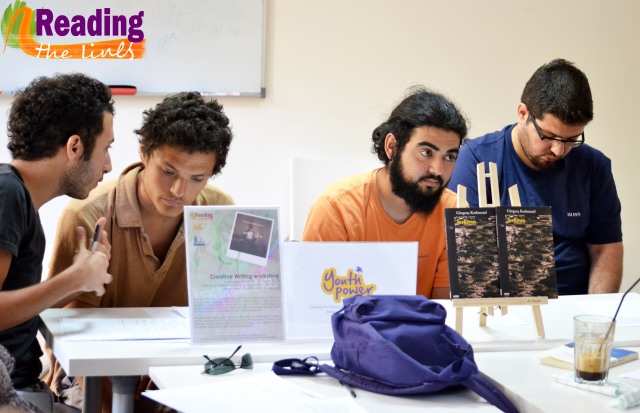
So have a look below at the group’s effort at sharing their own real or fictional secrets:
Here is Pantelis Mitsis’ humorous piece:
It is noisy at the cafe, today. I see Anne there, waiting for me, holding a table at a quiet corner. We chat a bit, but I could not help not noticing how reserved she is. And I don’t believe me being just half an hour late has anything to do with it.
‘What’s wrong, ra?!’, I ask her.
After some initial scruples, she tells me: ‘I caught Harry cheating on me. Last month I split some coffee on me, at work . So, during lunch hour, I rushed home to get a clean shirt. I entered the house and… I heard them. I though I had left the radio on, at first. But, then, I saw them on our own bed. They didn’t even notice me.’
‘And then?’ I left quietly.
Didn’t go back to work. Was wondering for hours. I was so shocked that … that I actually had forgotten that I was also being involved with someone else, for 8 months.
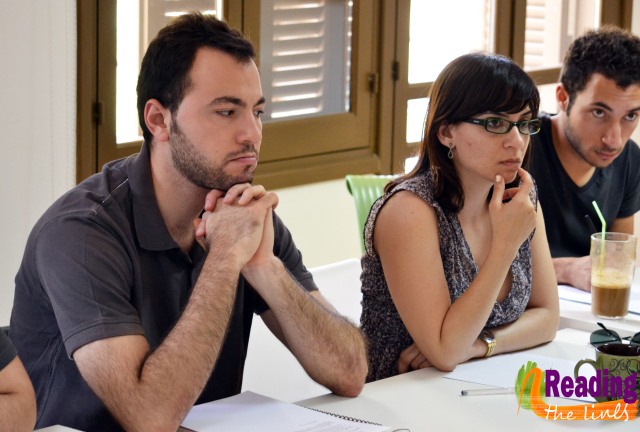
We also had the pleasure to be joined by the poet Senem Gökel, who wrote the following poignant piece :
Saatimi taktığım kolum çoğunlukla sorun yaratmıyordu. Sağ bileğimse açıkta kalıyordu. Tahtaya yazmaya devam ediyordum. Onlar bir yandan yazıyor, bir yandan da sabah mahmurlukları içinde kendi şivelerinde fısıldaşıyorlardı. Geç kalan birkaç öğrenci gürültüyle kendilerine birer yer seçtiler. Kolumu aşağıya indirip sallayarak, çaktırmadan giysimin kolunu bileğimi kapatacak şekilde çekiyordum. Garip bir hareketti ama her gün yaptığım bu hareketi garip karşılayacakları kadar garip değildi. Sevdikleri veya uzak oldukları için sevdiklerini fark ettikleri insanların hayali kafalarından geçerken, sıcaktan nasıl rahatsız olduklarını ısrarla anlatırken, bir an önce bitse dedikleri yükümlülüklerle ve neden burada olduklarını anlayamadıkları bir şehirde yaşarken, bir-iki saniyelik bir hareketin içinde neler barındırdığını bilmemeleri daha rahat olmamı sağlıyordu. Saatleri sayıyordum ve onlara örnek olma normalliği içinde, artık nereden geldiğini bilmediğim espirilerle günü geçiştiriyordum. Biraz daha aşağıda olacak bir kesik bugün daha kullanışlı olacaktı, en azından bileklikle kolayca kapatılabilirdi, ama on bir yıl önce onları keserken bunu hesaba katmamıştım.
The hand on which I wear my watch does not usually cause a problem for me. The wrist on my right hand though stays exposed. I continue writing on the board. The others, whilst writing, they are whispering drowsily in their own dialect. Some students coming in late, sit down noisily. I lower my hand shaking it imperceptibly, pulling my sleeve so as to cover my wrist. This movement that I have been making every day might seem strange, but not to the extent that it would surprise them. It is comforting to know that they are unaware of the meaning of this instantaneous movement, as they are dreaming of their loved ones or those whose presence they are missing, as they are insistently describing how annoying they find the heat to be and as they cannot understand the reason they are living in this city, burdened with commitments that they cannot wait to get over with. I am counting the hours while displaying an exemplary normal image, longing for the day to pass somehow with small jokes, coming out of nowhere. Had the cut been a little bit higher, it would have been more practical, it could have even been covered easily with a bracelet. Something I had not anticipated eleven years ago as I was cutting. (Translated by Antigone Fysa)
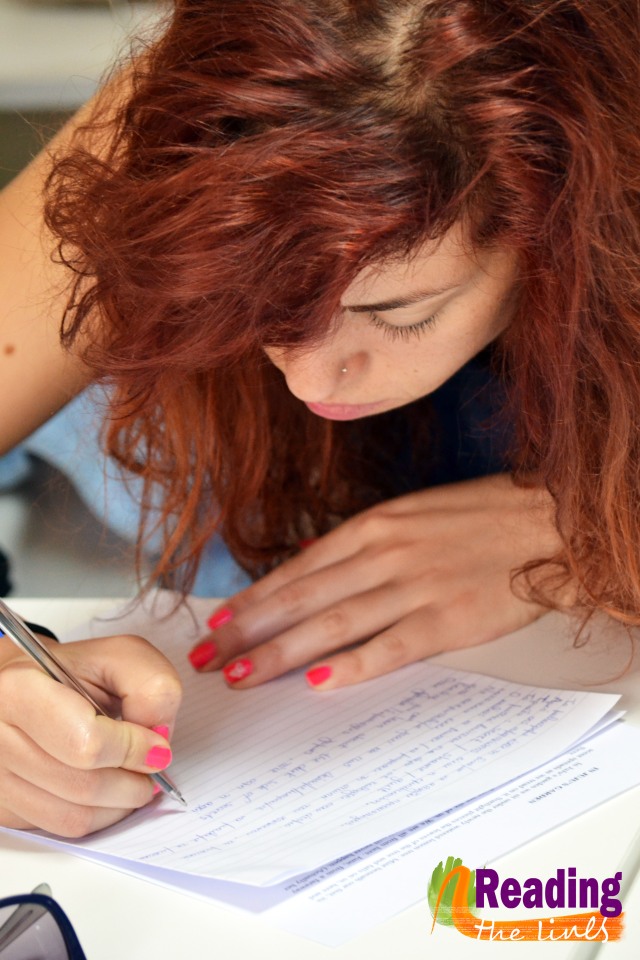
Writing away our secrets
Julian Mond wrote the following:
Silence is good for flowers and it is good for monsters.
Secrets. He used to hide his in silence as a child, before he had the light of language. In silence they grew, until they bloomed in verbs – fire flowers, reaching out across a dark, silent sky. Monstrous powers hide in delicate beings, like children and flowers.
‘Monsters should be written on the skin,’ he, now, says, looking over Nymphaea designs. ‘It’s time to speak in ink.’
Here is the piece by Skevi Sophocleous:
Αρχίζοντας πριν 5 χρόνια αυτή τη διαδρομή, νόμιζα ότι θα ανακαλύψω το «τροχό», πράγμα αδύνατον. Ήμουν πολύ φιλόδοξη και «πετούσα στα σύννεφα». Φανταζόμουν ότι η Ιθάκη είναι πολύ μακριά και η πορεία σε αυτή μοιάζει με βουνό απότομο και απροσπέλαστο. Τελικά με το χρόνο, αυτό το βουνό γίνεται προσβάσιμο. Άρχισα πλέον να το ανεβαίνω αλλά και κάποιες φορές να πέφτω από αυτό. Νομίζω τελικά είναι θέμα απόφασης να ανέβω στην κορυφή, αφού μπορεί τελικά να είναι μια προσβάσιμη πεδιάδα……
Starting out 5 years ago, I thought I’d reinvent the wheel, which is impossible. I was too ambitious and had my head in the sky. I was imagining that Ithaca is too faraway and this route resembles going through a steep and insurmountable mountain. In time, this mountain becomes more accessible. I have started to climb towards the top and, sometimes, I fall. I think it is all a matter of resolution to reach the top, since, after all, it might be an accessible valley.
Finally, Lev Atikoglu shared the following:
He saw the schedule of the flights. He missed his flight. He went to the toilet and coughed blood. He told his friend that he was very afraid. When he was on the airplane he couldn’t wipe his nose off. Some time later he felt a strange feeling: This time the distinctive color was everywhere. Yes he finally made it. He finally saw it that created many stories. Stories he told to himself. Those kept so many fears inside. When he came home, he poured the milk into the sink; there was blood in it. Yes this time it was everywhere. Oh, he made it. The name of this liquid has changed its signified reference. His friend was waiting outside the room, he came out and shook hands, he asked as if he was Macbeth: ‘Why can’t I remove this blood from my hand?’ Everybody was red inside, he was the only one who succeeded in reaching the point where red was outside. And then suddenly as he was walking along with the others, he asked ‘Seriously, when does this get fun?’
Some of the participants were brave enough to read their pieces to he group. Others kept them to themselves, but either way, this was a great exercise. As pointed out by the writer, fear, guilt and shame keep the secrets unrevealed. There is indeed something relieving about sharing your secrets. One of the participants actually noted that she felt as if she were in group therapy! What are your secrets? And would you share them in a creative piece of writing with a group of strangers?

